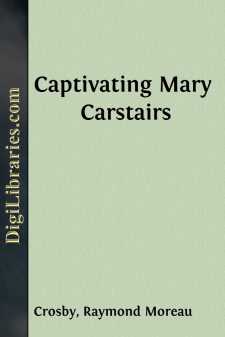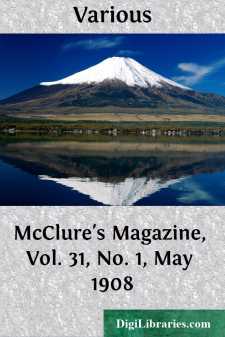Categories
- Antiques & Collectibles 13
- Architecture 36
- Art 48
- Bibles 22
- Biography & Autobiography 813
- Body, Mind & Spirit 142
- Business & Economics 28
- Children's Books 17
- Children's Fiction 14
- Computers 4
- Cooking 94
- Crafts & Hobbies 4
- Drama 346
- Education 46
- Family & Relationships 57
- Fiction 11829
- Games 19
- Gardening 17
- Health & Fitness 34
- History 1377
- House & Home 1
- Humor 147
- Juvenile Fiction 1873
- Juvenile Nonfiction 202
- Language Arts & Disciplines 88
- Law 16
- Literary Collections 686
- Literary Criticism 179
- Mathematics 13
- Medical 41
- Music 40
- Nature 179
- Non-Classifiable 1768
- Performing Arts 7
- Periodicals 1453
- Philosophy 64
- Photography 2
- Poetry 896
- Political Science 203
- Psychology 42
- Reference 154
- Religion 513
- Science 126
- Self-Help 84
- Social Science 81
- Sports & Recreation 34
- Study Aids 3
- Technology & Engineering 59
- Transportation 23
- Travel 463
- True Crime 29
Sort by:
by:
Maria Edgeworth
CHAPTER I. Some years ago, a lad of the name of William Jervas, or, as he was called from his lameness, Lame Jervas, whose business it was to tend the horses in one of the Cornwall tin-mines, was missing. He was left one night in a little hut, at one end of the mine, where he always slept; but in the morning, he could no where be found; and this his sudden disappearance gave rise to a number of strange...
more...
CHAPTER I THE CHIEF CONSPIRATOR SECURES A PAL In a rear room of a quaint little house uptown, a great bronzed-faced man sat at a piano, a dead pipe between his teeth, and absently played the most difficult of Beethoven's sonatas. Though he played it divinely, the three men who sat smoking and talking in a near-by corner paid not the least attention to him. The player, it seemed, did not expect...
more...
by:
Joaquin Miller
THE LITTLE GOLD MINERS OF THE SIERRAS. Their mother had died crossing the plains, and their father had had a leg broken by a wagon wheel passing over it as they descended the Sierras, and he was for a long time after reaching the mines miserable, lame and poor. The eldest boy, Jim Keene, as I remember him, was a bright little fellow, but wild as an Indian and full of mischief. The next eldest child,...
more...
CHAPTER I If you had stood there in the edge of the bleak spruce forest, with the wind moaning dismally through the twisting trees—midnight of deep December—the Transcontinental would have looked like a thing of fire; dull fire, glowing with a smouldering warmth, but of strange ghostliness and out of place. It was a weird shadow, helpless and without motion, and black as the half-Arctic night save...
more...
by:
Bernard Shaw
CHAPTER I At seven o'clock on a fine evening in April the gas had just been lighted in a room on the first floor of a house in York Road, Lambeth. A man, recently washed and brushed, stood on the hearthrug before a pier glass, arranging a white necktie, part of his evening dress. He was about thirty, well grown, and fully developed muscularly. There was no cloud of vice or trouble upon him: he was...
more...
by:
George Bell
JACK. I wish to note, and to suggest to students in ethnology, the Query, how it comes to pass that John Bull has a peculiar propensity to call things by his own name, his familiar appellative of Jack? Of all the long list of abbreviations and familiar names with which times past and present have supplied us, that which honest Falstaff found most pleasing to his ears, "Jack with my familiars!"...
more...
by:
Various
Cassidy gazed long and blankly across the desert. "Wot a life!" he muttered grimly. "Say, wot a life this is!" Cassidy made the words by putting his tongue against his set teeth and forcibly wrenching the sounds out by the roots. The words had been a long time in the making, but now, because of the infinite sourness of their birth and because of the acrid grinding and gritting that had...
more...
CHAPTER I INTRODUCTORY "Would you like to go up to Gilgit?" "Rather." I was down in the military offices at Simla, hunting for a book and some maps, when I was asked the above question. No idea of Gilgit had before entered my head, but with the question came the answer, and I have since wondered why I never before thought of applying for the billet. This was at the end of June 1894, and...
more...
by:
Maurice Baring
CHAPTER I For the purposes of the average Russian, and still more for the purposes of the foreigner, Russian literature begins with the nineteenth century, that is to say with the reign of Alexander I. It was then that the literary fruits on which Russia has since fed were born. The seeds were sown, of course, centuries earlier; but the history of Russian literature up to the nineteenth century is not...
more...
by:
James Mactear
The study of the History of Chemistry as an art, or as a science, is one which possesses peculiar fascination for its votaries. It has been the subject of deep research and much discussion, much has been written upon the subject, and many theories have been broached to account for its origin. We have had laid before us by Professor Ferguson, in his papers on this subject of Chemical History, very...
more...











